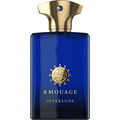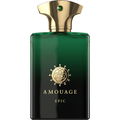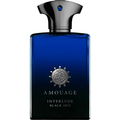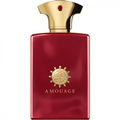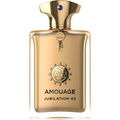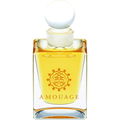08/11/2025

ClaireV
969 Reviews

ClaireV
1
The best Amouage attar
Badr al Badour is a heavy, opulent attar based on a mixture of real oud oils (one from Cambodia, the other from Myanmar), rosa damascena oil, ambergris, and a touch of sandalwood. The opening is a rather classic rose-oud combination, with a rather dark, medicinal oud note and a citrusy, geranium-tinted Bulgarian rose. So far, so traditional. But slowly, as the oil warms up on the skin, the Burmese oud oil comes to the fore and it is then that you begin to notice the lightly sour, almost fetid breath of real oud wood. It is peppery and dry with nary a hint of sweetness to soften it. I would best describe the smell as the dusty, pleasantly stale woodiness you get when you lift the lid on an old wooden trunk that has been sitting at the back of a house, abandoned for a long time. It is the smell of decay and of ancient wood breaking down. There is, for the average Westerner, a moment of repulsion - fight it. After the repulsion comes attraction and fascination. There is a reason aficionados describe the smell of real oud as a compelling type of smell.
The salty funk of ambergris breathes life into the sour, dry oud mélange from beneath, bequeathing a round sort of warmth that has nothing to do with sweetness. I would describe the base of this attar as opulently rich and golden, and the oud heart as silver or grey, if that makes any sense. The citrusy, light rose of the start seems to gain in richness and creaminess as the day wears on. This is perhaps the softening effect of the sandalwood. I have seen the rose in this described as a Bulgarian rose in one place, and a Taifi rose in another - I don't know which source is accurate. Either way, the rose starts out as sharply green and citrusy as the pure Taifi rose attar I once tested from Abdul Samad Al Qurashi called Al Ta'if Rose Nakhb Al Arous. This is the type of rose I smell at the start of Badr Al Badour. It softens as the day goes on, though, becoming more 'rosy' and sweeter/creamier. More recognizable as a rose, let's say, than as a citron.
Overall, this is an unusually prismatic scent for an oil attar - different notes seem to come forward and then recede over the course of a wearing, allowing others to take their place. At times, the scent was purely a dry oud one, at times the rose came forward to cast a sweet, rosy netting over the oud, and at other times, everything but the salty warmth of the ambergris dropped back. This made for an endlessly rich and varied wearing experience throughout the day. I savored every minute that Badr al Badour was on my skin.
The salty funk of ambergris breathes life into the sour, dry oud mélange from beneath, bequeathing a round sort of warmth that has nothing to do with sweetness. I would describe the base of this attar as opulently rich and golden, and the oud heart as silver or grey, if that makes any sense. The citrusy, light rose of the start seems to gain in richness and creaminess as the day wears on. This is perhaps the softening effect of the sandalwood. I have seen the rose in this described as a Bulgarian rose in one place, and a Taifi rose in another - I don't know which source is accurate. Either way, the rose starts out as sharply green and citrusy as the pure Taifi rose attar I once tested from Abdul Samad Al Qurashi called Al Ta'if Rose Nakhb Al Arous. This is the type of rose I smell at the start of Badr Al Badour. It softens as the day goes on, though, becoming more 'rosy' and sweeter/creamier. More recognizable as a rose, let's say, than as a citron.
Overall, this is an unusually prismatic scent for an oil attar - different notes seem to come forward and then recede over the course of a wearing, allowing others to take their place. At times, the scent was purely a dry oud one, at times the rose came forward to cast a sweet, rosy netting over the oud, and at other times, everything but the salty warmth of the ambergris dropped back. This made for an endlessly rich and varied wearing experience throughout the day. I savored every minute that Badr al Badour was on my skin.
1 Comment




 Top Notes
Top Notes  Bulgarian rose
Bulgarian rose Amber
Amber Heart Notes
Heart Notes  Burmese oud
Burmese oud Base Notes
Base Notes  Sandalwood
Sandalwood Indian oud
Indian oud
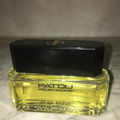
 Hermesh
Hermesh


